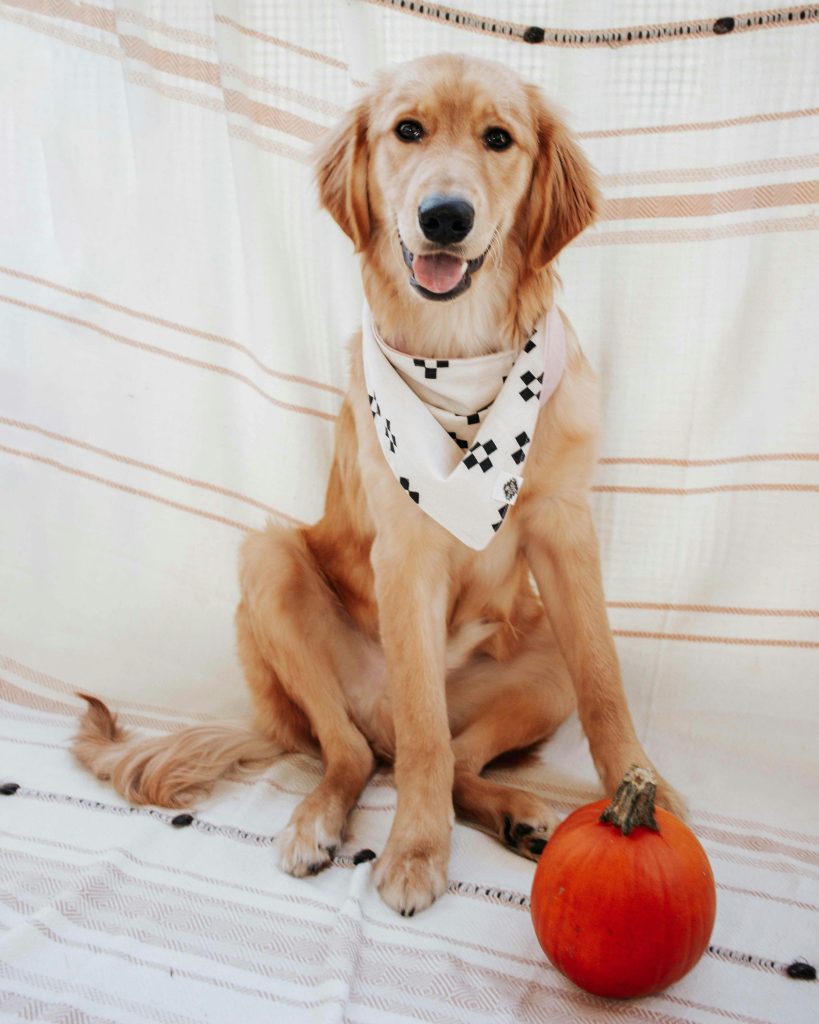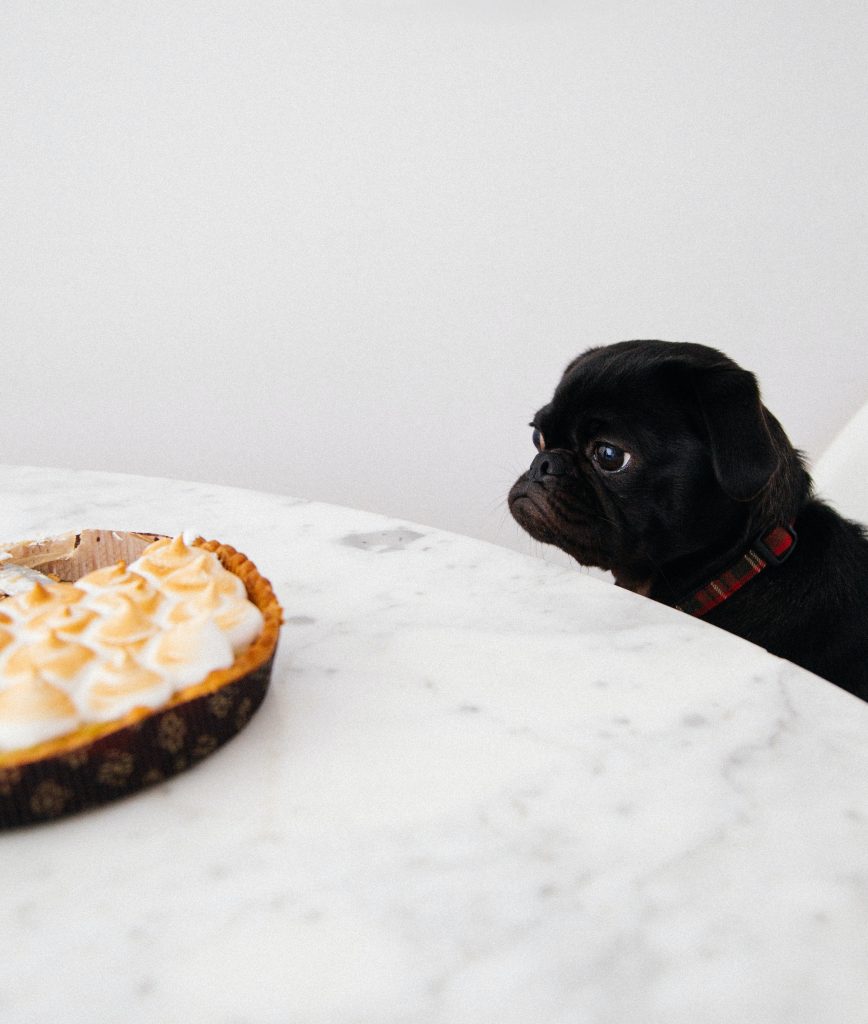
Understanding Holiday Stress for Dogs
November and December can be particularly stressful for dogs prone to anxiety, due to the combination of loud noises, unfamiliar faces, and new environments. During holiday gatherings, it is important to be aware of the common anxiety symptoms in pets, such as excessive barking, backing away, and changes in body language.Recognizing these signs is crucial in decreasing stress and improving a dog’s overall well-being.
For example, let’s consider a dog named Max. Max is a rescue dog who is easily overwhelmed by new situations and loud noises. During the holiday season, when Max’s family has guests over for a festive gathering, he starts exhibiting signs of stress. He begins barking excessively, pacing back and forth, and hiding under furniture. His family recognizes these signs as indicators of anxiety and takes steps to alleviate his stress. By understanding Max’s triggers and providing him with a safe and quiet space to retreat to, they are able to help him feel more comfortable and reduce his holiday stress.
To further illustrate the impact of holiday stress on dogs, let’s take the example of Bella, a small dog who lives in a bustling city. Every year during the holiday season, Bella becomes anxious due to the increased noise from holiday celebrations and fireworks. She starts shaking, panting heavily, and seeking comfort from her owners. Bella’s family recognizes her distress and takes proactive measures to alleviate her stress. They create a safe space for her in a quiet room, away from the noise and commotion. This helps Bella feel secure and allows her to relax during the holiday festivities.
Assessing and addressing pet anxiety during the holidays is crucial for ensuring the well-being of our furry friends. By understanding the signs of stress and anxiety in dogs, we can take appropriate steps to alleviate their discomfort and create a more enjoyable holiday experience for everyone involved.

Assessing and Addressing Pet Anxiety
If your pet shows signs of anxiety during the holidays, it is advisable to consult with a veterinarian to assess their symptoms and determine if medication is necessary. While there are various products available that claim to help with pet anxiety, such as chews, oils, and collars, their effectiveness is limited and should be approached with caution. Instead, focusing on training and socialization can play a significant role in preventing anxiety in pets.
For instance, let’s consider the case of Charlie, a Labrador Retriever who becomes anxious during the holiday season. His family notices that he becomes restless, paces around the house, and whines when guests are over. They consult with their veterinarian, who recommends a combination of training and socialization to help Charlie overcome his anxiety. The family starts implementing desensitization techniques by gradually exposing Charlie to the sights and sounds of holiday gatherings. They reward him with treats and praise when he remains calm, helping him develop positive associations with these situations.
Additionally, obedience training, regular exercise, mental stimulation, and overall pet health can contribute to reducing anxiety. Providing dogs with opportunities for physical exercise helps release excess energy and promotes relaxation. Mental stimulation, such as puzzle toys or training sessions, can divert their focus from stressful situations and provide a sense of accomplishment. Maintaining a consistent routine and ensuring their overall health through regular veterinary check-ups and a balanced diet also contribute to their overall well-being and resilience to stress.
By addressing pet anxiety through training, socialization, exercise, and overall health, we can help our dogs build resilience and cope better with the holiday season. It is important to remember that each dog is unique, and what works for one may not work for another. Consulting with a veterinarian can provide personalized guidance tailored to your pet’s specific needs.

Strategies for Reducing Holiday Stress in Dogs
To minimize stress for dogs during holiday activities and gatherings, it is important to prepare in advance. Creating a safe space for your pet, such as a crate or a designated room, allows them to retreat and feel secure. Prior to the event, make sure to exercise your pet to help them relax during the gathering. It is also crucial to prevent door dashing and provide a calm environment by managing noise levels and limiting access to potentially stressful situations.
One effective strategy for reducing holiday stress in dogs is to create a designated safe space for them. This can be a crate, a specific room, or even a cozy corner with their bed and favorite toys. For example, let’s consider the case of Luna, a shy and anxious dog who becomes overwhelmed during holiday gatherings. Luna’s family creates a safe space for her in a spare bedroom, away from the noise and commotion. They set up her bed, place her favorite toys and a comforting blanket, and ensure the room is quiet and comfortable. Whenever Luna starts feeling anxious, she knows she can retreat to her safe space and feel secure.
In addition to creating a safe space, it is important to exercise your dog before the gathering. Physical exercise helps release excessive energy, promotes relaxation, and reduces the likelihood of behavioral issues arising from boredom or pent-up energy. Taking your dog for a long walk or engaging in a play session prior to the event can help them feel more relaxed and calm during the gathering.
Managing noise levels is another crucial aspect of reducing holiday stress in dogs. Loud noises, such as fireworks or loud music, can be extremely distressing for our furry friends. Creating a calm environment by playing soothing music, using white noise machines, or providing a safe area away from noise sources can help alleviate their anxiety. Additionally, it is important to prevent door dashing by ensuring that all doors and gates are securely closed and that your dog is wearing an identification tag with up-to-date contact information.
By implementing strategies such as creating a safe space, exercising your pet, managing noise levels, and preventing door dashing, you can help reduce holiday stress in dogs and create a more peaceful environment for both your pet and your family. Remember to be patient and understanding, as it may take time for your dog to adjust to these new routines and environments.
